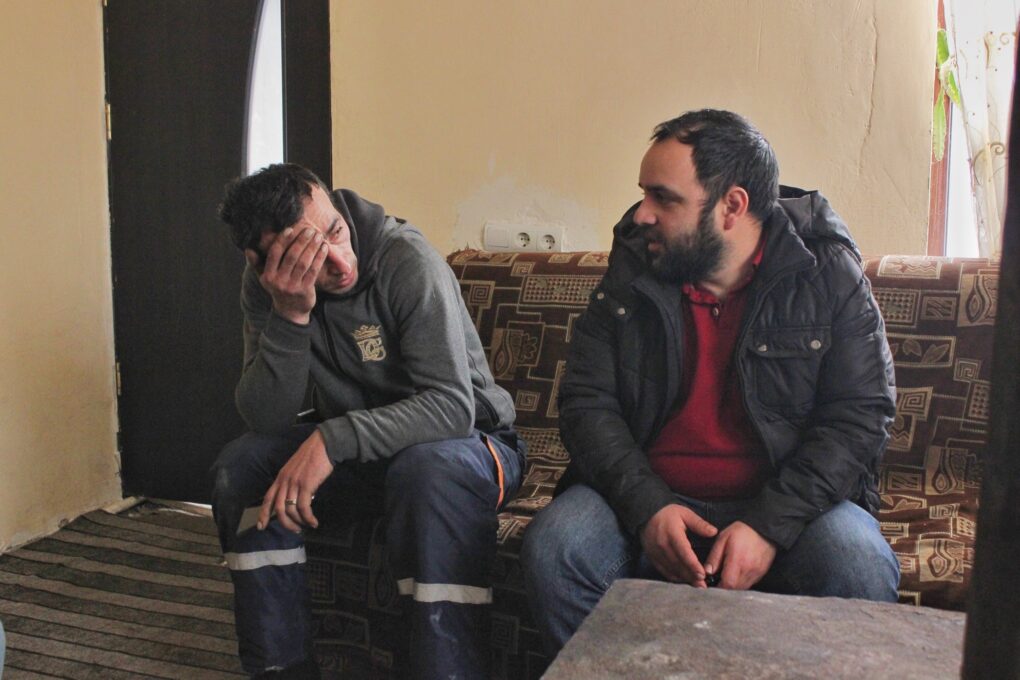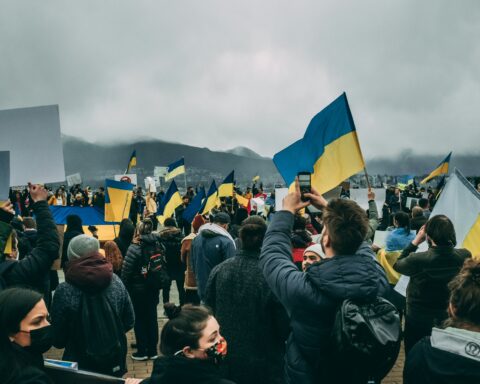As the Russia-Ukraine war monopolizes the world’s attention, the Armenian diaspora in Canada is watching with apprehension as another conflict flares up in another part of the world to which they have close ties, fearing it will lead to another full-scale war.
They are also perturbed at the Canadian government’s lack of response to this geopolitical issue that affects their large community of approximately 90,000 members, according to the Armenian Office of the High Commissioner for Diaspora Affairs.
Their concerns centre on Nagorno-Karabakh (also known as Artsakh), a disputed territory in the South Caucasus, home to a population of ethnic Armenians, which has seen a recent escalation of violence between Azerbaijan and Armenia.
“It is obvious that Azerbaijan is using the cover of war in Ukraine to push forward its agenda of ethnic cleansing of Armenians who have lived there for millennia, and of erasing Armenian history in what remains of the enclave,” Haik Kazarian, a Canadian-Armenian social entrepreneur from Montreal told New Canadian Media.
Media reports state that on Mar. 24, Azerbaijani forces took advantage of a gap in the Russian peacekeeping presence in the Nagorno-Karabakh region, violated the line of contact and occupied a village there, killing three and wounding 15 people. The conquest and occupation of the village followed a 16-day period in which Azerbaijan cut off the region’s Armenians from their fuel supply, forcing schools, hospitals and businesses to freeze in the low temperatures of this mountainous area in the South Caucasus.
Speaking from Yerevan, Armenia’s capital, where he now resides, Kazarian said the flare-up of hostilities should be taken seriously by the Canadian government, and that it should aid victims of the attacks as soon as possible given the large Armenian population within its borders.
“(So) the federal government should show support with actions, not words,” said Kazarian.
Ceasefire breaking down
The disputed territory, Nagorno-Karabakh (Artsakh), has been internationally recognized as part of Azerbaijan ever since the Soviet Union declared it as such in 1923.
However, according to a 2009 census provided by the World Directory of Minorities and Indigenous People, it had been home to approximately 120,000 ethnic Armenians for millennia. This was before war broke out between Azerbaijan and Armenia in September 2020, when about 90,000 of them fled to Armenia.
Separated from Armenia by 151 kms, Nagorno-Karabakh has long been a bone of contention between Azerbaijan and Armenia and a geopolitical flashpoint, with regional powers, Russia and Turkey, competing for control.
A Russian-brokered ceasefire was signed on Nov. 9, 2020 following Armenia’s defeat and Azerbaijan gaining control over large swaths of this territory.
But the ceasefire is breaking down in an alarming way, particularly given Russia’s current preoccupation with Ukraine, say Canadian Armenians like Kazarian.
Commitment to peace in Armenia rings hollow
After the 2020 war broke out, Minister of Foreign Affairs Mélanie Joly tweeted: “Canada is deeply concerned by the recent Armenia-Azerbaijan border clash, which resulted in the deaths of Armenian troops. Our thoughts are w/the victims’ families, loved ones & the community. We call for de-escalation so that a peaceful solution to the conflict may be found.”
Canada is deeply concerned by the recent #Armenia–#Azerbaijan border clash, which resulted in the deaths of Armenian troops. Our thoughts are w/ the victims’ families, loved ones & the community. We call for de-escalation so that a peaceful solution to the conflict may be found.
— Mélanie Joly (@melaniejoly) November 16, 2021
A petition was also presented by MP Garnett Genuis (Sherwood Park- Fort Saskatchewan) which elicited a response signed by Rob Oliphant, Joly’s parliamentary secretary. Tabled on Jan. 31, 2021, it stated: “Canada will continue to remain engaged and supportive of sustainable peace and security, and will continue to assist with humanitarian efforts.”
But now their words ring hollow and meaningless, says Sarkis Assadourian, who was the first Armenian to be elected to the Canadian parliament in 1993 and was MP for Brampton Centre from 1993 to 2004.
“Victory has 1,000 fathers, but defeat is an orphan,” says Assadourian, who lives in Richmond Hill, Ontario, referring to what he says is a common belief among the community that Armenia has been abandoned by Canada and the Western world following its defeat in the 2020 war and because it is not a European, NATO ally.
“There are … Canadian Armenians with strong ties to these ancestral territories, many with family and relatives living there,” he said.
“Armenia is still struggling with poverty and high unemployment, and now (in the wake of the Ukraine war), refugees from Ukraine, and even Russia are pouring in because it’s considered a safe country. There are 2,000 Russian peacekeepers in Nagorno-Karabakh until 2025, according to the ceasefire agreement, but it’s easy to break a treaty with a weak country. Armenia has no armaments and is dependent on Russia for security. A country without armaments is like an orchestra without instruments.”
Suzy Mekhdjian, of Aurora, Ontario, another Canadian Armenian community activist, told NCM she hoped Canada would do more, particularly given the lack of a “forceful international response of any kind, even though many Armenians who live in the Montreal area are in the ridings of Prime Minister Trudeau and Minister of Foreign Affairs Mélanie Joly.”
“Canada can send peacekeepers to Armenia as the Russian ones can’t watch everything in the mountainous area,” she said. “We can send more humanitarian assistance and doctors with expertise in amputations, because so many were wounded in wars in the region.”
NGOs soldiering on
Kazarian founded a humanitarian foundation called Transparent Armenia Foundations when he moved back to Armenia.
“We are registered as a foundation in Canada, but are still waiting for charitable status,” he said, adding that they are “running on fumes” but soldiering on. They have now progressed from providing food and clothes to those who fled to Armenia from Nagorno-Karabakh, to finding long-term solutions for families in poverty.
He described “Project Oink,” the foundation’s newest endeavour, as “teaching people to fish rather than giving them fish,” as the program is meant to deliver pigs to poor families to help them generate an income by raising and selling the animals.
Asked why pigs were chosen as a source of income, he said it’s because they are relatively easy to raise, don’t need much investment to feed, and most of all, because Armenians love pork.
“We love pork chops, barbecued pork and pork on skewers that we call khorovasdz (similar to kebabs).”
Disappointed but not deterred, Kazarian pointedly noted that it has been NGOs, rather than governments, that have been doing the heavy lifting in providing humanitarian assistance to people who are uprooted by wars in the region, though he said fundraising has become more difficult lately due to donor fatigue.
“Those who are most affected by the war are those living in cities rather than villages. Villagers often use wood and cow dung in stoves for heat, but it is the city folk in Stepanakert (city in Artsakh), for example, who rely on piped gas,” he explained.
“Many are still suffering due to the bitter cold. I would like the Canadian government to show it cares with actions, not words, and come to the aid of victims who are brutalized by their neighbours.”
Ottawa-based writer/journalist, editor, blogger, communications professional seeking freelance opportunities in political and travel writing.





